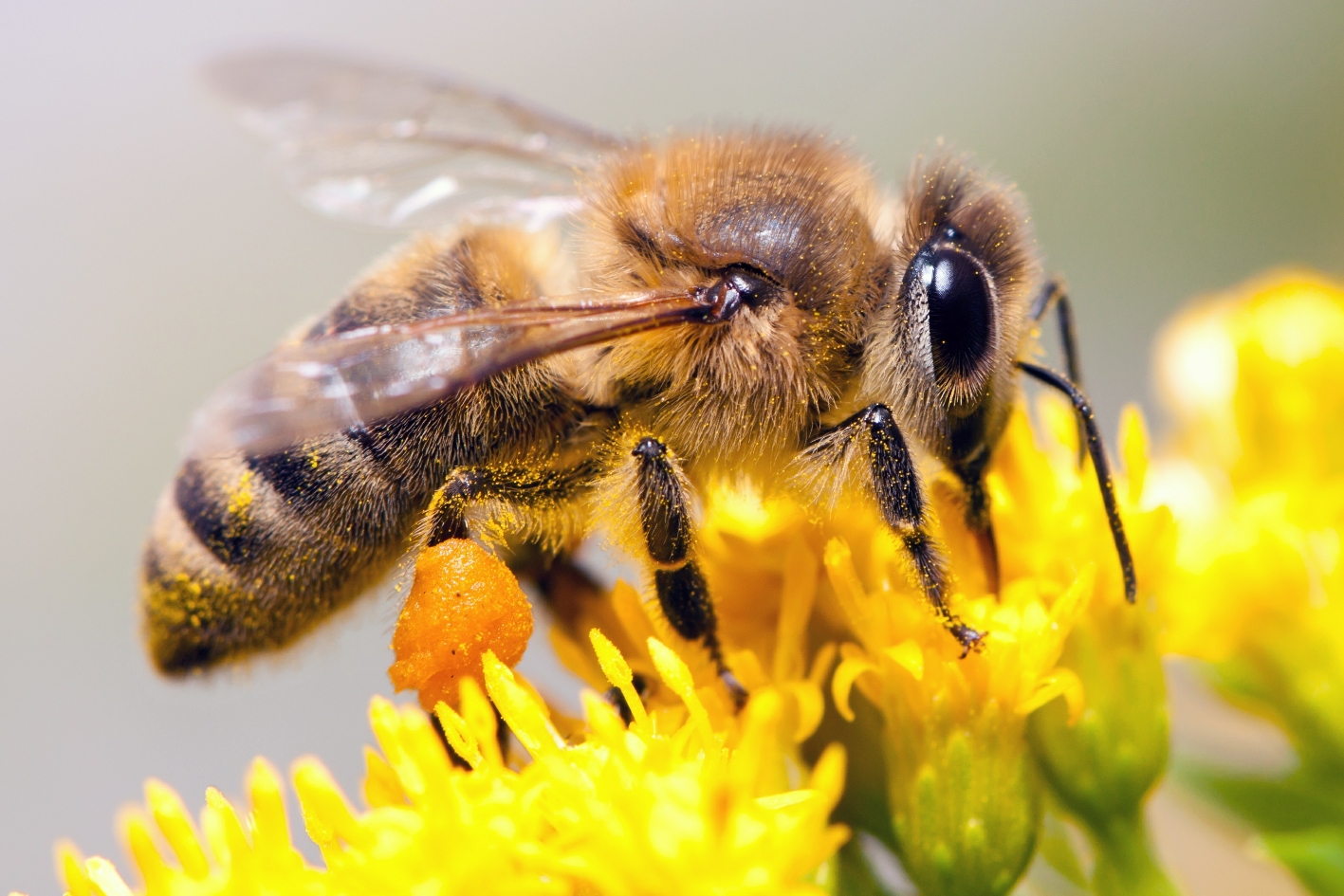
Doing more than pollinating our crops and bringing us honey
" We can all do our bit to help bees "
Almost 90% of wild plants and 75% of leading global crops depend on animal pollination. It has been stated that one in every three mouthfuls of our food depends on pollinators. Chief among our animal pollinators are hard-working bees.
Most crops grown for their fruits (including vegetables such as squash, cucumber, tomato and aubergine), nuts, seeds, fibre (such as cotton), and hay (alfalfa grown to feed livestock), require pollination by insects. Bees are renowned for their contribution to our food chain. A plate of food on the table is more than likely to have had bees playing a part in putting it there.
Globally there are more honeybees than other types of bee and pollinating insects but they are disappearing at an alarming rate due to pesticides, parasites, disease, and habitat loss. The thought therefore arises: if these insects were to vanish what would we do without them? It might not mean the end of food, but it would certainly dramatically reduce the selection.
We can all do our bit to help bees. Plant a range of flowers in your garden, window box or communal garden so that they have access to nectar from March to October. Bees love traditional cottage garden flowers and native wildflowers.
In order to be able to feed the world’s growing population, we need ever more food, which must be diverse, balanced and of good quality to ensure the progress and wellbeing of humankind.
Bees do more than pollinate our crops and bring us honey. Other products that come to us courtesy of bees include royal jelly and pollen (both claim nutritional benefits and are widely marketed as dietary supplements); propolis, used as a skin cream to help fight infections and heal wounds; honeybee venom, used as a natural treatment for many ailments; and beeswax, with its myriad of uses. But the work of bees entails much more!
As well as being vital for the preservation of ecological balance and biodiversity in nature, bees also act as indicators of the state of the environment. Their presence, absence or quantity alerts us to changes in the environment. By observing the development and health of bees, it is possible to take timely action to implement precautionary measures necessary to avoid further damage.
Amanda Roberts
Looking forward to the new collaboration
Consideration of mutually beneficial topics